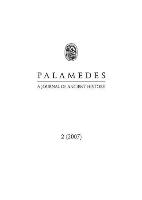MOICHEIA: ADULTERY OR SOMETHING MORE?
MOICHEIA: ADULTERY OR SOMETHING MORE?
Author(s): Aleksander WolickiSubject(s): History
Published by: Wydawnictwa Uniwersytetu Warszawskiego
Keywords: MOICHEIA; ADULTERY; ATHENIAN; LAW
Summary/Abstract: Until the 1980s the academic world agreed that in Athenian sources a crime called moicheia referred to sexual relations of a male Athenian with a female Athenian who was from a citizen family and neither his wife nor concubine. Moicheia seems, therefore, to have been a broader term than the modern word ‘adultery’, which only applies to intercourse with someone else’s partner, and to have also denoted sexual relations with someone else’s mother, sister, or daughter.1 Thus, laws against moicheia would have been established to protect not (only) the institution of marriage, but the authority (kyrieia) of a citizen over female members of his family (oikos).2 The broad understanding of this term is founded on a law called Ehebruchsgesetz by Hans Julius Wolff,3 which is attested in three fourth-century texts, and a description of events in speech 59 of Corpus Demosthenicum that was to illustrate this law in practice.
Journal: Palamedes: A Journal of Ancient History
- Issue Year: 2007
- Issue No: 2
- Page Range: 131-142
- Page Count: 12
- Language: English
- Content File-PDF

